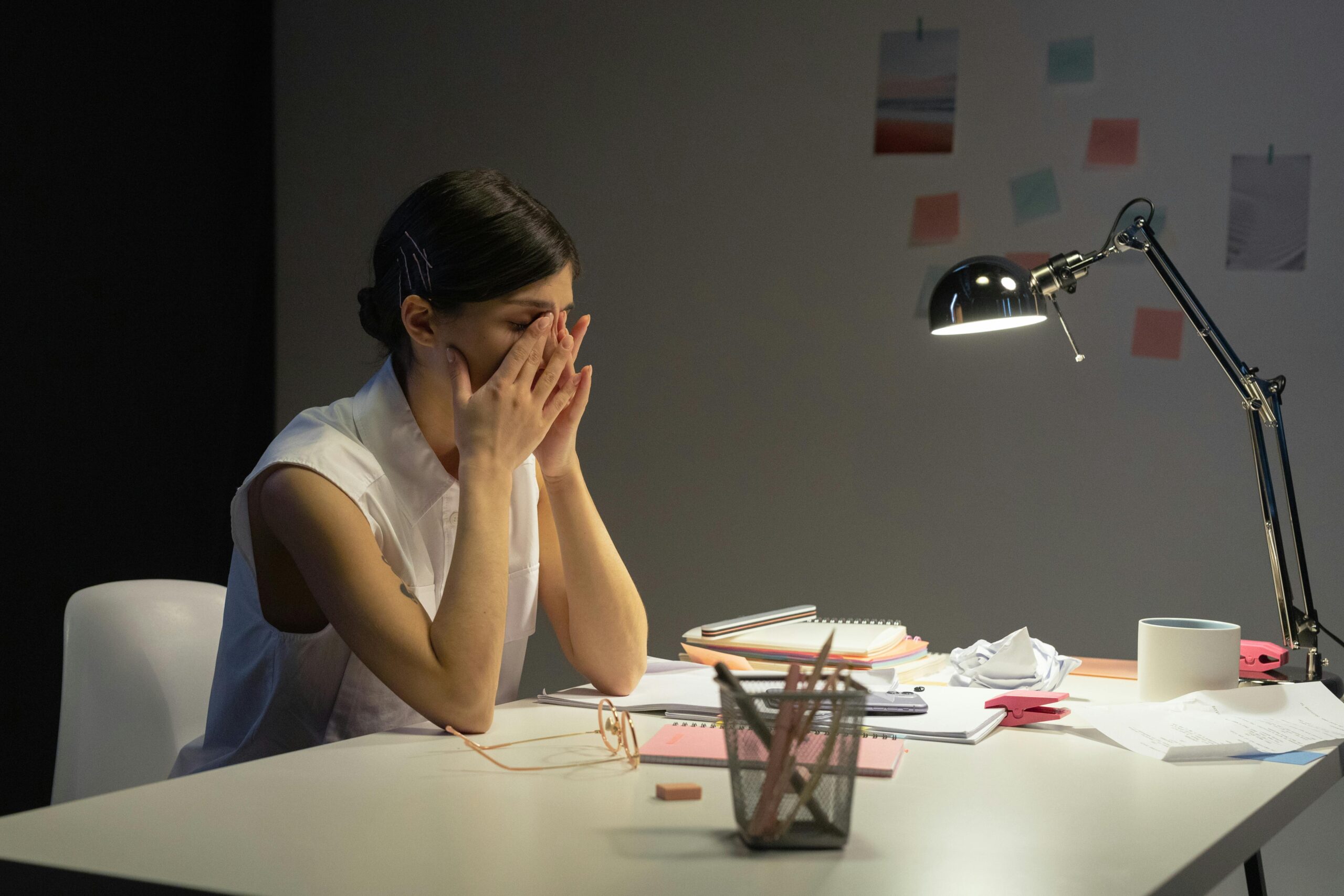Stress in the workplace is on the rise, with increasing numbers of workers reporting that they’re struggling to handle the stress and pressure of the workplace. This rise in workplace stress can be fuelled by increasing job demands, reduced staffing, long hours, and pressure to be always available, in addition to societal uncertainty and rising mental health issues that can reduce our resilience to stress.
If left unchecked, stress levels that exceed our capacity to cope can impact mental and physical health, increase the risk of burnout, and fuel a drop off in engagement and productivity.
Our new Coping With Stress course is a series of 4 x 30 minute bite-sized sessions – provide your employees with key evidence-based tips and techniques for coping better with stress and increasing their resilience and robustness, improving effectiveness and productivity and reducing illness and sick leave.
The sessions are delivered by our team of fully qualified and experienced workplace mental health professionals (registered by the BACP and with a minimum of 10 years post-qualification experience in workplace counselling) These shorter 30 minute sessions offer an accessible way of empowering staff to manage their own stress levels and develop the skills needed to build sustainable resilience.
Session 1: How to assess your current stress and resilience levels (30 minutes)
We all have a certain capability to absorb the stresses of life, but problems arise when the demands and stressors placed upon us exceed our resources for coping. In this session participants are helped to understand where their pressures arise in their personal and professional lives, what coping strategies are in place and how we might begin to build greater resilience.
The session looks at:
- The Resilience Jar – Understanding our stress levels
- What is our stress signature?
- Coping strategies and their efficacy
Session 2: Coping with Stress – Mindset (30 minutes)
How we think our way through stressful situations and experiences often inadvertently sustains and exacerbates the experience of stress. How we feel about stressful situations is the trigger point of the stress response. Simple but effective changes in mindset can help us make better decisions in the face of stress, cultivating greater equilibrium:
The session looks at:
- Recognising when our thoughts are the trigger for our stress
- Gaining perspective
- Developing the skill of being present in the moment
Session 3: Coping with Stress – Actions (30 minutes)
There are a variety of behavioural changes that we can weave into our life than can help us manage and reduce stress, and dramatically improve our resilience. Exploring the role of physical activity, knowing when and how to take breaks and having the confidence to talk about your stresses and mental health are all covered in this session.
The session looks at:
- Exercise and stress reduction
- The importance of breaks
- Setting and communicating boundaries
- Connection with others
Session 4: Improving Sleep for Greater Resilience (30 minutes)
Stress can impact our sleep, and sleep deprivation increases our susceptibility to stress! This session focuses on practical psychology-based techniques which are proven to improve sleep and maintain good sleep over the long term. We use principles from the model of Cognitive Behavioural Therapy for Insomnia (CBT-i).
The session looks at:
- The psychological connection between bed and sleep
- How to create automatic behaviours that facilitate good sleep
- The circadian rhythm and consistent wake up time
The Coping With Stress course offers employees a practical, evidence-based approach to managing stress and enhancing resilience. Through four accessible 30-minute sessions, participants will gain essential skills to not only cope with workplace stress but also foster long-term mental wellbeing. By providing tools to assess stress, shift mindsets, introduce positive actions, and improve sleep, this course empowers employees to take control of their health and productivity. If you’re interested in supporting your team in building a healthier, more resilient work environment, please get in touch for further details by completing the form below:


